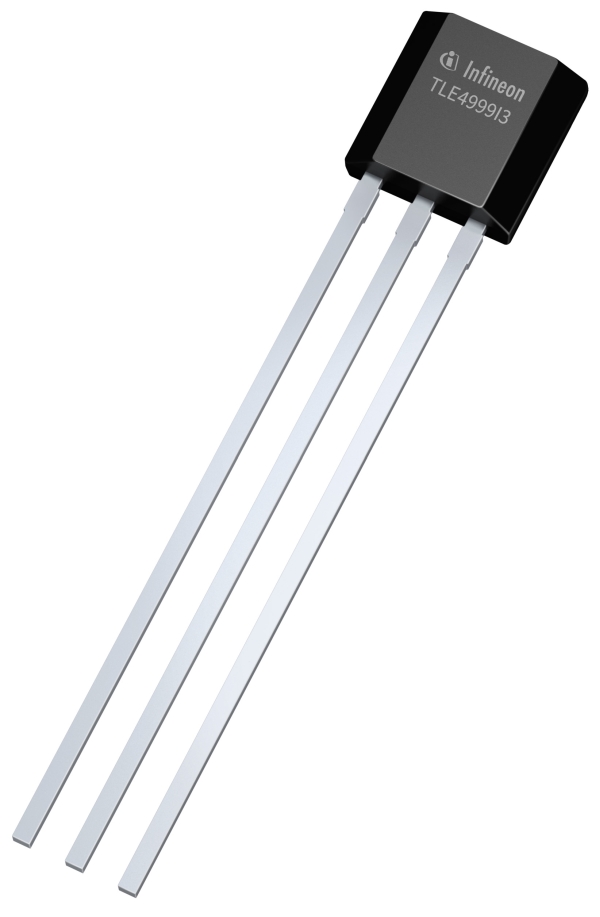Infineon Technologies will launch a monolithically integrated linear Hall sensor which was developed entirely according to the safety standard ISO26262 for automotive applications.

With just one device, the XENSIV TLE4999I3 enables the development of fault-tolerant systems that have to meet the highest level of functional safety (ASIL D). These include, for example, electric steering systems, electric throttle control systems, and pedal applications.
ISO26262 requires a system to keep functioning even if a single fault occurs, and so the TLE4999I3 allows uninterrupted operation at system level. The device consists of a monolithic design with two independent Hall elements. Their signal paths are separate from each other. Internal control mechanisms carry out a plausibility check of the sensor data already within the chip. Furthermore, the new linear Hall sensor also provides extensive status information to the system.
In addition to functional safety, the TLE4999I3 also offers high magnetic sensitivity with an error tolerance of less than 2 percent. The offset error drift, also an important parameter for magnetic sensors to determine the absolute position in a magnetic field, is maximum 100µT. This is just half that of comparable products, Infineon adds. The values of these parameters apply across the entire temperature range and lifetime of the product.
With the TLE4999I3, two magnetic ranges of ±12.5 mT and 25 mT can be adjusted. These low values allow the use of relatively small and, consequently, inexpensive magnets.
The device features a PSI5 communication interface. Physically, this is a current interface, the advantages of which, according to Infineon, are a low wiring effort and an excellent electromagnetic performance. The TLE4999I3 is suitable for applications in which it is connected to the control unit over large distances: It supports cable lengths up to a distance of 12 m.
Read more: WORLD’S FIRST MONOLITHICALLY INTEGRATED LINEAR HALL SENSOR FOR ASIL D SYSTEMS
